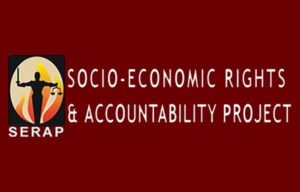FG trains over 25,000 women entrepreneurs- Minister
By Gloria Akudoro, Abuja
In her bid to ensure women are economically empowered, the Women Affairs Minister, Dame Pauline Tallen disclosed that over 25,000 women have benefited from its entrepreneur training program in three years.
Tallen said this while speaking on the theme; “Gender Inclusivity and Women Economic Empowerment: Making the Change for Women and Children”, during the just concluded 22nd Regular National Council on Women Affairs in Abuja on Thursday.
She stated that the success of the programme was backed by the support from ECOWAS and Access Bank 50 Million Women Speak Platform Project (50MWSPP) designed to reposition women entrepreneurs in Nigeria through digital marketing.
While revealing the achievements made in gender agenda issues in Nigeria, the Minister noted that the additional challenges, insecurity, collapse of food system and an increase in gender-base violence and other human rights violations were heralded by Covid-19. Adding that this calls for the ministry calls for improved funding for the ministry and the realignment o its mandate with the core principle of enhancing social inclusion and reduced poverty.
According to her, the National Council on Women Affairs is a forum for monitoring our achievements, knowledge sharing and exchange of expertise amongst all stakeholders with a view to deliver effectively and efficiently on the Ministry’s mandate and to make approval of the Memoranda submitted by the Federal and States Ministries as well Ministries, Departments and Agencies, whose mandate impact the sector.
She commended the efforts of the ex-Permanent Secretary, the HeforShe Champion for the good job done and the resilience of Directors both at the federal, states, Commissioners and their Permanent Secretaries for their untiring efforts.
“Upon my resumption in August, 2019, I was mindful of the 9-Point Priority Projects Deliverables for the Federal Ministry of Women Affairs hinged on the FG Priority Area 7 – Enhance Social Inclusion and Reduce Poverty. These targets form the benchmark upon which our performances are rated.
So, we prioritized gender-based violence, social, cultural inequalities and other harmful practices that disproportionately affect the health of women and children. We focused on inclusive interventions towards enhancing the socio-economic development of Nigeria for impactful outcomes in line with the Economic Sustainability Plan (ESP) and the Sustainable Development Goals (SDGs)”, she stressed.




